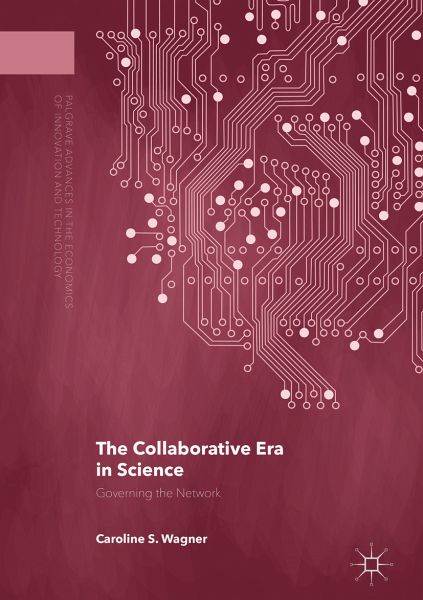
The Collaborative Era in Science (eBook, PDF)
Governing the Network
Versandkostenfrei!
Sofort per Download lieferbar
64,95 €
inkl. MwSt.
Weitere Ausgaben:

PAYBACK Punkte
32 °P sammeln!
In recent years a global network of science has emerged as a result of thousands of individual scientists seeking to collaborate with colleagues around the world, creating a network which rises above national systems. The globalization of science is part of the underlying shift in knowledge creation generally: the collaborative era in science. Over the past decade, the growth in the amount of knowledge and the speed at which it is available has created a fundamental shift-where data, information, and knowledge were once scarce resources, they are now abundantly available. Collaboration, openne...
In recent years a global network of science has emerged as a result of thousands of individual scientists seeking to collaborate with colleagues around the world, creating a network which rises above national systems. The globalization of science is part of the underlying shift in knowledge creation generally: the collaborative era in science. Over the past decade, the growth in the amount of knowledge and the speed at which it is available has created a fundamental shift-where data, information, and knowledge were once scarce resources, they are now abundantly available. Collaboration, openness, customer- or problem-focused research and development, altruism, and reciprocity are notable features of abundance, and they create challenges that economists have not yet studied. This book defines the collaborative era, describes how it came to be, reveals its internal dynamics, and demonstrates how real-world practitioners are changing to take advantage of it. Most importantly, the book lays out a guide for policymakers and entrepreneurs as they shift perspectives to take advantage of the collaborative era in order to create social and economic welfare.
Dieser Download kann aus rechtlichen Gründen nur mit Rechnungsadresse in A, B, BG, CY, CZ, D, DK, EW, E, FIN, F, GR, HR, H, IRL, I, LT, L, LR, M, NL, PL, P, R, S, SLO, SK ausgeliefert werden.












